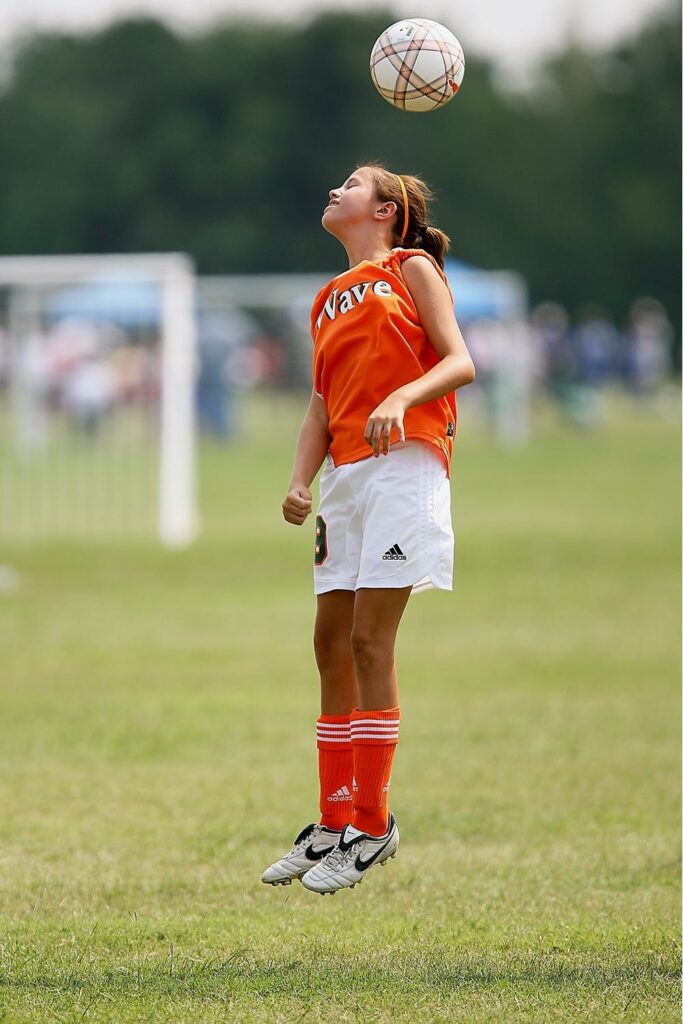15 Ways To Get Reluctant Kids Into Sports
If you have a child who is reluctant to participate in sports, there are a few ways you can help gently nudge them. Wanting your child to participate in something like this is great – it’ll keep them active, so their minds and bodies stay healthy. You’ll give them a hobby to focus on, teach them a skill, and the things they learn will likely help them in their everyday lives too, even if they don’t realize it. However, you can’t really explain all that to a child who really doesn’t seem interested. Below, you’ll find 15 ways you can get your reluctant child into sports – take a look:
- Consider Your Child’s Skills And Interests
Start by considering your child’s skills and interests. The whole point of this is not to live vicariously through your child and have them become the football star that you always wanted to be but never were. The point is to give your child a hobby that they actually enjoy which will help to keep them fit. They might want to dance, or play a completely different sport. Try not to push them into doing something based on their gender. Boys can dance and girls can play football. Let them do what they naturally have an interest in or feel drawn to.
2. Think Of The Time Commitment
Although you want this to be something your child sticks to, you also need to consider the time commitment they will be making. Playing a sport once a week should be ok for most kids, but pushing them to practice for hours on end will likely do more harm than good. If you do manage do get them liking a sport, then you need to both be prepared for the time you will need to give up to dedicate to it.
3. Play Sports With Your Child
Playing sports with your child can be a lot of fun, and your child will develop a love of being active. Play games with them in the garden, set up obstacle races, and do all you can to get them used to feeling active. You can introduce them to a sport when you feel the time is right, but make sure it stays fun.
4. Be A Role Model For Them
If you’re sitting around most days watching TV, they are going to follow in your footsteps. It doesn’t matter what you tell them, it matters what you show them. You need to be a role model for them and show them how a healthy, happy person lives. Play sports yourself. Head to the gym. Join a class or a club. It’ll make a huge difference to how they view sports and staying active.
5. See If You Can Start A Discussion With Them
If your child is old enough, you may want to see if you can start a discussion with them to see why they are reluctant. They may be able to tell you that they are scared they will be bad at it, that they have no confidence, or that they are worried you will shout at them. Whatever it is, take them seriously and don’t invalidate their fears. You need to let them know you hear them while also helping to ease their worries about giving this a go.

6. Watch Sports On TV
Don’t underestimate the joy of watching sports on TV with your child. If you watch it and do your best to get them involved and make it something that they want to watch, before long you might find yourself explaining the English Football Leagues to them, or explaining the mechanics of baseball. This can be a great experience for you both.
7. Start Slowly
If your child agrees to try something out, you want to start slowly. Take them to their chosen sport once a week, not most days. Pushing them too hard at the start will overwhelm them and likely make them want to quit.
8. Don’t Put Too Much Pressure On
You want to take an interest in your child’s sport without putting pressure on them. Putting pressure on kids is a bad idea. They may feel under too much pressure to perform well, develop anxiety, or even want to quit before they’ve really started. Yes you’re excited, but you need to be mindful of how your child is feeling and how you could have an impact on how they feel.
9. See If You Can Find A Class For The Both Of You
If your child is young enough, you may be able to find a parent and child class that you can both do together. They will likely prefer doing a class with you, at least to begin with! Even if you have to start with something like dancing or yoga, you are still helping them to stay active and getting them used to moving their bodies.
10. Offer Praise
The key once your child is interested in sports is to offer the right sort of praise. You shouldn’t be critiquing their every move – you are not their coach, and you should trust that they are doing their best. There’s a difference between giving them helpful hints and telling them they are doing something wrong and need to get better. You don’t want to dishearten them or give them a complex, which can easily happen if you criticize them. Kids tend to take criticism to heart.
Knowing how to praise your child isn’t about saying ‘you’re a natural, so talented!’ either. Because this sort of praise could easily frighten them away from trying things they don’t feel they’ll be ‘natural’ at. You want to praise them on their efforts, and the fact they did their best. Be specific about the things they did really well if you like, but remember the most important thing to praise is their effort. It really will make all the difference, both now and in the future.
11. Stay Positive
You want to make sports a positive experience, so don’t let any disappointment show. If your child lost, you need to remain neutral and keep a positive view. When they get older, you want to make them a gracious player, whether they win or lose. Shouting about how it’s unfair and that your child should have won will likely make them disrespectful or competitive when they play. It’s not that being competitive is bad, it’s that throwing your dummy out of the pram when you lose is bad.
12. Ensure They Are Free To Make Mistakes
One of the things kids don’t like, is feeling like they can’t make mistakes or fail. Failures are a fact of life, and they can teach many lessons. Let them be free to make mistakes and let them learn. Help them to understand that they can learn from each perceived failure. Make sure they know that failure doesn’t mean they shouldn’t try again. If you teach your child this lesson, they can use it in every area of their life, not just sports.

13. Encourage Curiosity
c x2Encourage your child to try different things. Let them try football, soccer, swimming, ballet – anything that they like. Teach them that there are benefits in all sports and that they can be enjoyed for different reasons. Teaching them curiosity now will help them to figure out where they want to be more readily when they grow up!
14. Give Them People To Look Up To
Make sure your child has people to look up to – not only you, but great sports figures. Tell them all about your heroes and why you love them. Show them some of the best stories and people in sports to inspire them. Inspirational stories can really spark a light in children and get them interested in things they may not have shown an interest in otherwise.
15. Just Keep Gently Nudging
Even if you’ve tried most things here and your child still isn’t budging, it doesn’t mean you shouldn’t try to periodically nudge them when the time is right. Starting in elementary school or later can still produce a top athlete, providing they have been active in their early years.
Conclusion: Getting Your Reluctant Child Into Sports
You don’t have to start your child off with sports – start with walking and family bike rides. Go swimming together. Eventually, even if it’s in high school, they may show an interest. If they don’t, at least you’ve still taught them the value of staying active and healthy. This doesn’t mean they won’t develop other valuable hobbies, such as writing, painting, crafting, or something else. Be proud of your child and praise them anyway. You are the voice they hear inside their head when they are winning or losing – remember that.
Did you manage to get your reluctant child into sports? Perhaps they are now a dance maniac or soccer star? Leave a comment below to let us know how that played out. Come back soon for more helpful guides – thanks for reading!